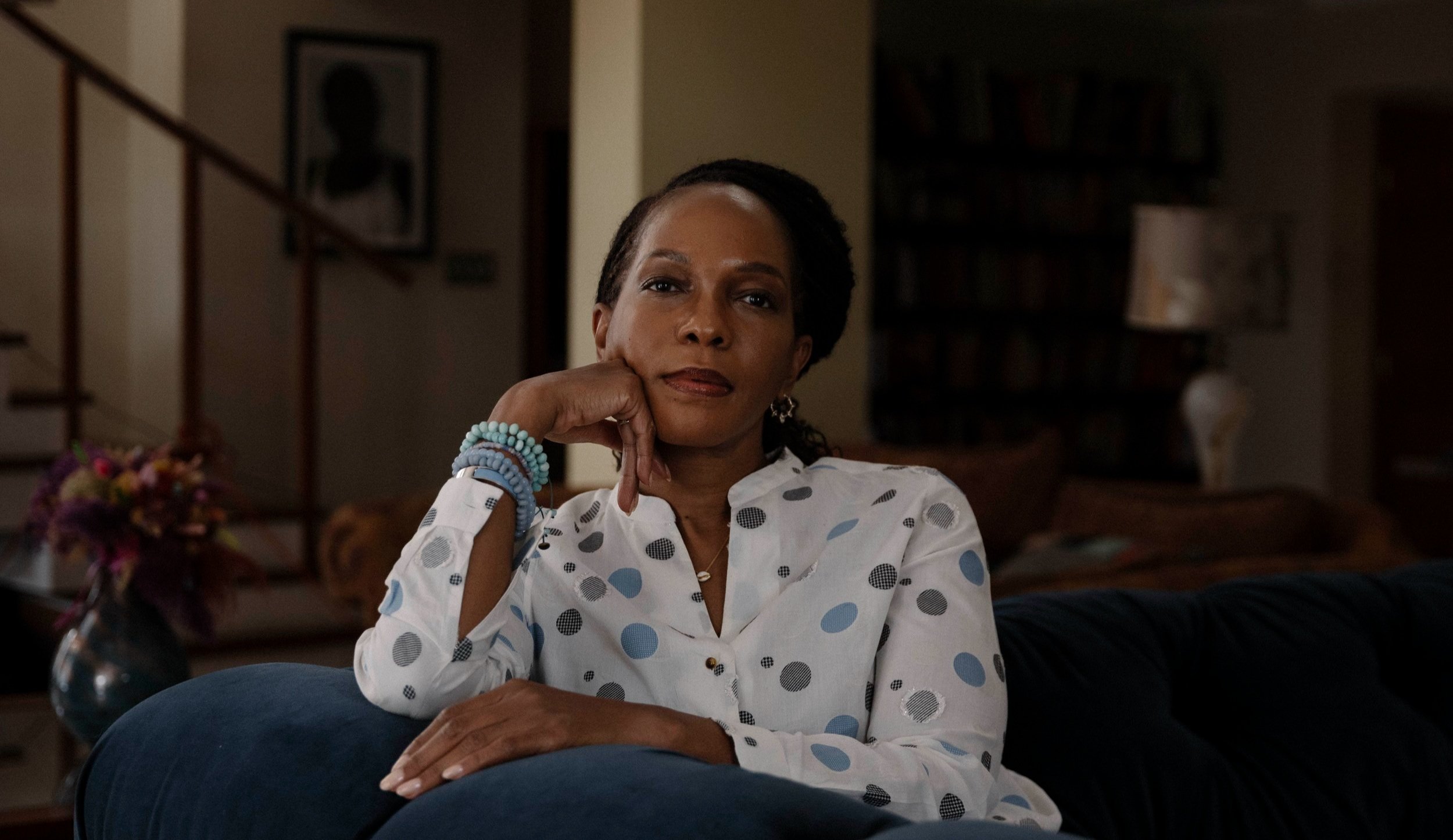In an era of fleeting digital messages, the handwritten letter is a sensory artifact. It tethers us to a moment in time when a loved one wrote our name.
Photos by Caroline Gutman
April 9, 2025
My grandmother steady, brown, and irate would sit and write letters. Discontented, disappointed, or enraged by your behavior, she put it in writing. We still laugh about the terror those letters would strike in her children’s hearts.
Rarely, she would also send a letter when she wanted to raise your sunken chin. I think those were reserved for her grandchildren mostly. I have saved one of them and placed it on the altar in my bedroom. It is the one where she told me that any unkindness I suffered (“if anybody treats you mean”) would come back on the perpetrator threefold.
“So smile,” she concluded.
I laughed because she taught me to. I laugh still, when I think about it. Simple justice.
There is nothing in digital communication that can touch the sensory pleasure of an actual letter. The cheaper the paper, the more I like it. Give me a dollar store notebook sheet, a sliver with the faintest crinkle sound. You’d better use a blue ball point pen, or press softly because ink can make it melt it’s so thin. Pausing will leave a blot. My mother prefers a more solid paper like she prefers cotton percale to jersey. She writes her letters differently from her mother, my grandmother. My grandmother’s letters were squareish. My mother, her daughter, has a flourish that is elegant if often illegible. Mine are self-consciously crafted: of determined loops. Inheritance is inexact.
I am writing this letter so you can see some things I know. For example: my grandmother’s dear friend Mary was deaf, and so they wrote real-time letters, notes really, to each other. Paired with gestures and laughter, it was intimate communication. I loved to listen in. But do you call it eavesdropping when it is near silent communication? To me it felt more like witnessing this truth: At home we didn’t need to be taught about ableism because we practiced care. Every single one of us had their adversities and crosses to bear and bodies to which they were bound. And if you loved each other right you worked with all of that not against it.
//
Both women are gone now. They left behind memories and artifacts and also ways of being shared implicitly but insistently. And maybe that is why my most favorite letters from home are the ones which are spoken as wordless words, especially the letters M and H. I will give you some translations to get at what I mean:
Mm mm mm:
A lament, or with a hitch in the throat to say “Now you know that’s a shame.”
Mmhmm:
Agreement but of more than one kind. Sometimes kind, sometimes eager, sometimes gossipy, sometimes relieved.
Mm:
Skepticism. Or with a rolled eye.
Mm mm (curt):
Nope.
Mmm mm!:
It’s so good.
Mm mm (with a rising song of sound at the end):
I don’t know.
Here’s another thing I know, but don’t know what to do with just yet. Living is a series of hellos and goodbyes. And that is hard if you have the great fortune of love. Now, when I return home there’s yet another missing face, my cousin Dwayne — the one who I always saw at home, who I never imagined would cease smiling at me. There’s a cavern in my chest where a bear hug was reliable. His heart gave out. It is terrible. And now I know I should stop using heartbreak as a metaphor because the devastation of a literally broken heart is so much vaster than lovesickness. I say his name in prayer. I don’t know if he can hear me, but I’m counting on it like a 12-bar blues song. I’m sending him notes. And him too. And her and her and her and her. Notes for all my beloveds who crossed over. But they aren’t made of words. They’re a grief dirge, a moan. A love letter to home. ◊
Imani Perry is the Henry A. Morss, Jr. and Elisabeth W. Morss Professor of Studies of Women, Gender and Sexuality and of African and African American Studies at Harvard University and the Carol K. Pforzheimer Professor at Harvard Radcliffe Institute. She previously served as the Hughes-Rogers Professor of African American Studies at Princeton University and a faculty associate with the Programs in Law and Public Affairs, Gender and Sexuality Studies and Jazz Studies. Perry is a 2023 MacArthur Fellow and received the 2022 National Book Award for Nonfiction for South to America: A Journey Below the Mason Dixon to Understand the Soul of a Nation. Her recent book Black in Blues published in January.
Caroline Gutman is an American photographer, producer and director working in Washington, DC and Philadelphia, PA. Her work focuses on political movements, gender and economic inequality, and the creative economy, connecting the past to the present. Previously, she was a Fulbright Fellow in China and a Fund Analyst for Morningstar, and she has led visual storytelling workshops for various international organizations. She is a member of Women Photograph, American Photographic Artists (APA), National Press Photographers' Association (NPPA), White House Press Photographers Association (WHNPA), Women Photojournalists of Washington (WPOW), and The Luupe.




